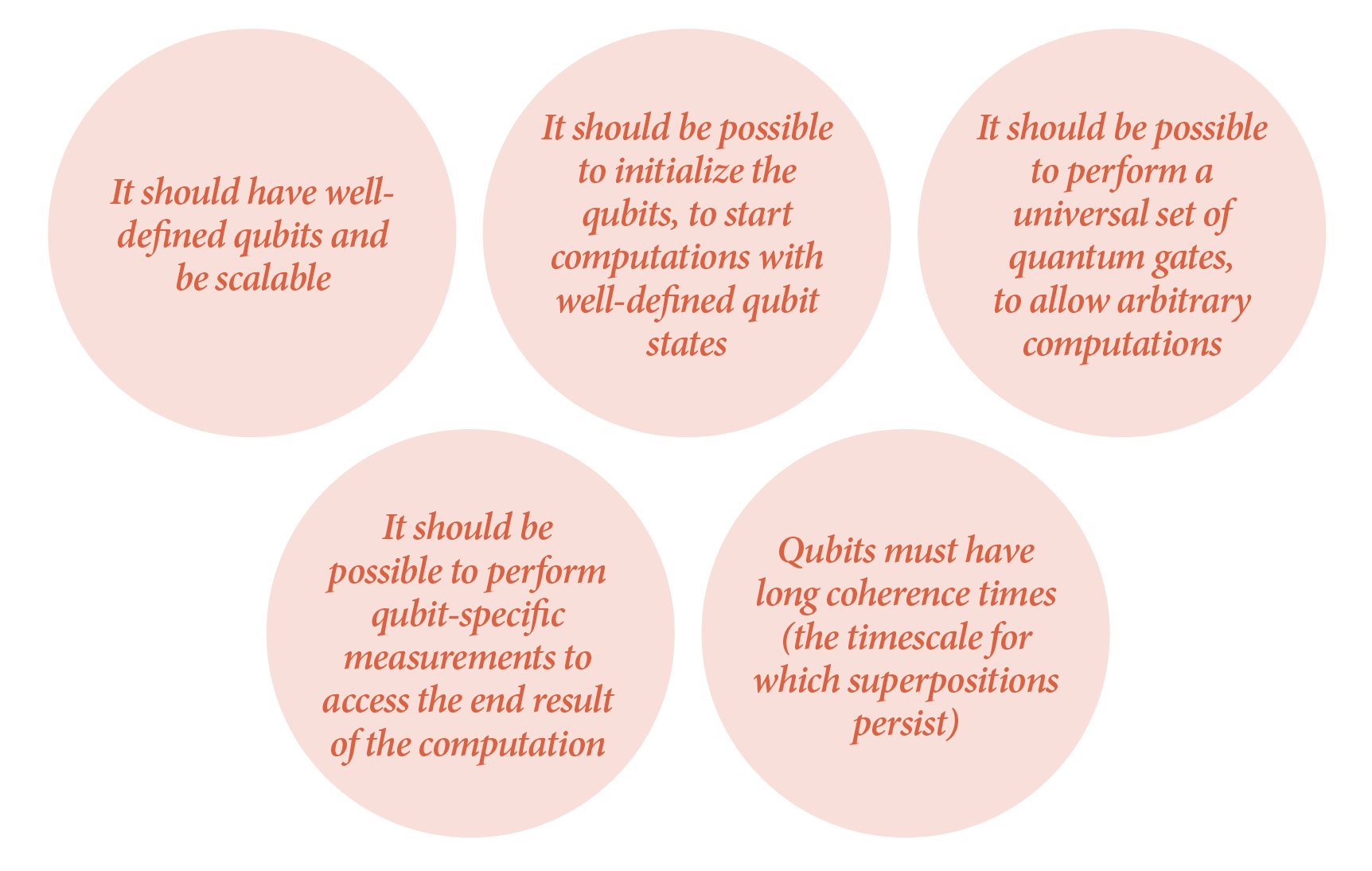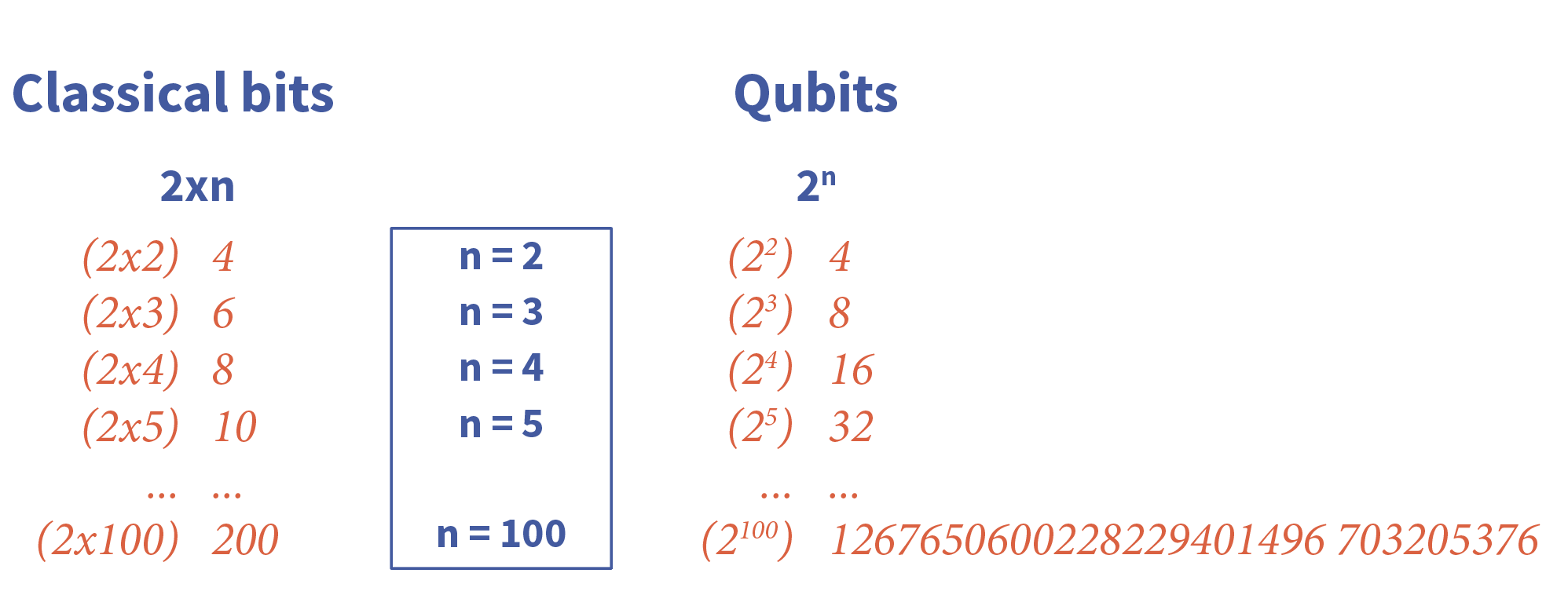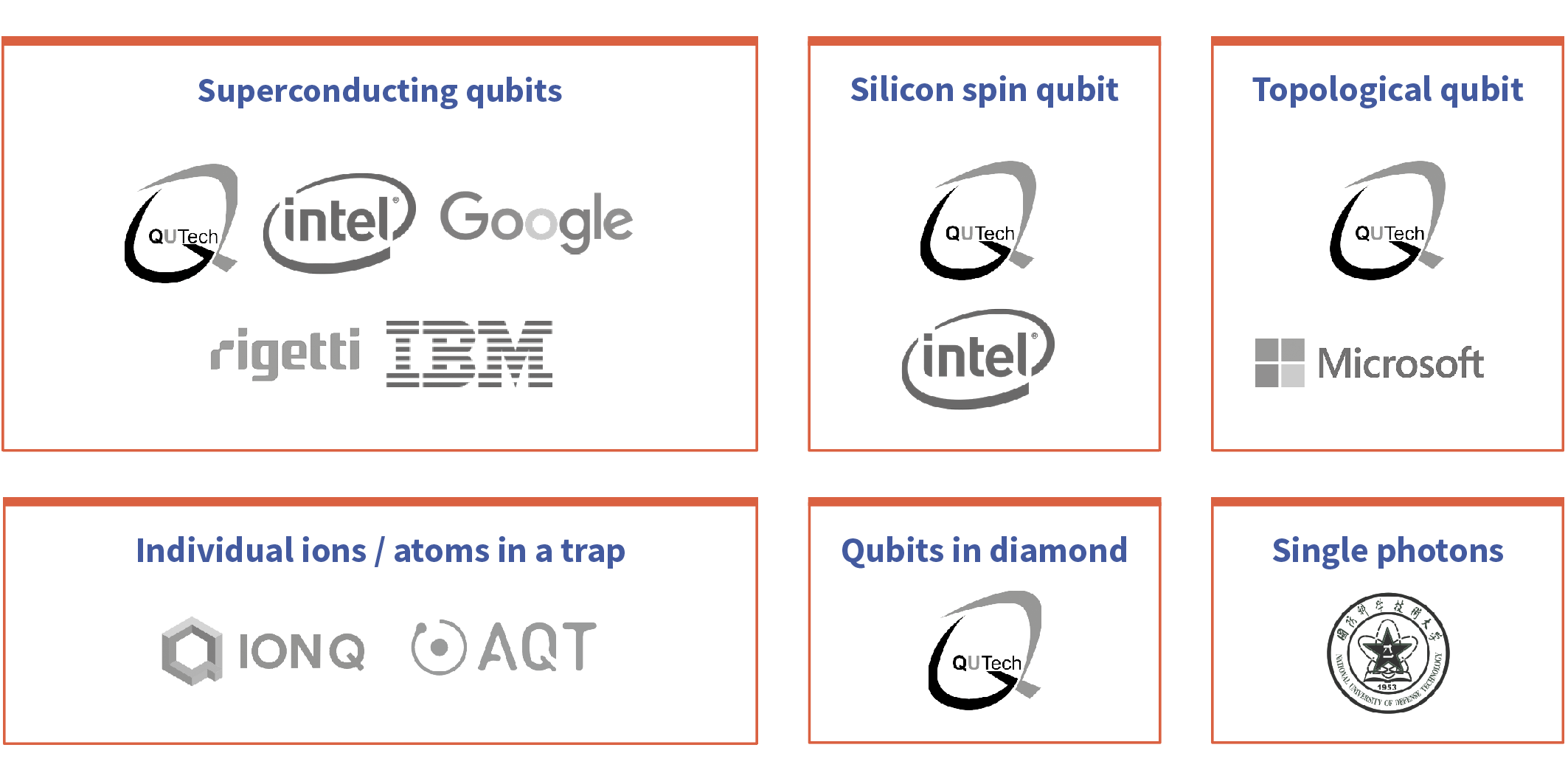Quantum computing
A quantum computer can be compared to a classical computer, but instead of using classical bits it works with qubits. Quantum computers are expected to be very powerful. For instance, it is expected that quantum computers with a few thousands of good quality qubits can recover the private keys in public-key cryptosystems: a problem deemed intractable with classical computers. The computing power of quantum computers doubles with every good-quality qubit that is added. However, it is currently still a challenge to incorporate large numbers of interacting qubits in a quantum computer. Many companies are trying to build large-scale quantum computers based on different types of qubits. It is far from clear yet which one will turn out to be the ultimate qubit. In fact, large-scale quantum computers might even become hybrid systems, based on various types of qubits.
You might expect that we first need to build large-scale quantum computers that work with millions of qubits, before we can actually have a quantum internet. After all, classical computers also arrived before we could connect them via the classical internet. It turns out that history may not be repeating itself in this case: we expect to have a functioning quantum internet before having large-scale quantum computers. This is because a quantum internet can already connect quantum devices that contain a single qubit – and we are already envisioning applications for this.
Quantum computers will nevertheless have an impact on the quantum internet. Once full-fledged quantum computers become available, the most advanced type of quantum network can be built: the quantum computing network. In this quantum computing network, quantum computers are linked to each other via the quantum internet. With large computing power, extremely difficult problems can be solved that can no longer efficiently be solved with a classical computer.
Examples are:
- Breaking widely-used public key cryptography
- Solving certain types of optimization problems faster, like optimization problems in data analytics
- Simulating molecules and materials more efficiently, which can aid a better understanding of diseases and the design of more effective medicines
-
Quality of qubits
A quantum computer needs very high-quality qubits, while a quantum internet already functions with lower quality qubits (with the help of the classical internet).
Number of qubits
A quantum computer needs thousands to millions of qubits before it will be able to outperform classical computers for certain computations. A quantum internet can already outperform a classical internet on security with very few qubits.
The DiVincenzo criteria
In order to claim that you have built a quantum computer, the quantum computer should satisfy five criteria:

The exponential power of qubits

